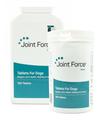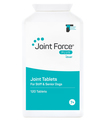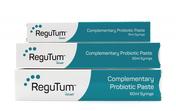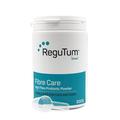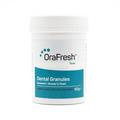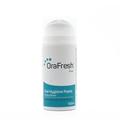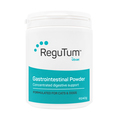There are so many multivitamin supplements out there to choose from and they all come with a ginormous list of ingredients. It can be quite overwhelming...! So what vitamins and minerals are good for our pets and what do they do? With the release of our own brand TotaVit™ Multi-Vitamin Conditioning Chews for Dogs we’ve made a compact guide summarising the key ingredients and what you need to know about them.
Vitamins
-
Vitamin A
This is required for the body’s cells to develop normally and for the immune system to function properly. It is also an essential part of the retina in the eye, and so a key part of vision.
-
Vitamin B
There are 8 types of B Vitamin. B1 is Thiamine which is a crucial part of energy metabolism (how the body processes food into energy) and cannot be created by the body, it is therefore an essential ingredient for dog/cat diets. B2, B3, B5, B6, and B7 are all important parts of the normal skin barrier and so are often recommended for supplementation in skin disease. B9 (folic acid) and B12 (cobalamin) are used for the creation of proteins and normal blood cell production. Both are not easily stored by the body so are often supplemented in intestinal, liver or pancreatic disease.
-
Vitamin C
Vitamin C is used for normal tissue growth and maintenance, reducing oxidative stress (AKA is an antioxidant). It also helps with regulation of the immune system.
-
Vitamin D
An important regulator of bone metabolism, Vitamin D is vital for normal bone maintenance and structure. Recent research shows it may be involved in the normal function of many other organs too.
-
Vitamin E
This functions as an antioxidant that helps to maintain normal function of the connection between the muscle and the neurons, i.e. normal neuromuscular function.
Minerals
-
Calcium
Vital for healthy bones and teeth as well as a crucial part of the normal transmission of nerve impulses. This means it must be present for normal muscle contraction.
-
Phosphorus
Like calcium, a large proportion of phosphorus is found in the teeth and bones. Phosphorus also makes up the outer surface of cells within the body, helps provide cells their energy and is a structural component of DNA.
-
Iron
This is a key part of haemoglobin which is found in red blood cells and transports oxygen from the lungs around the body. A deficiency in iron can lead to low red blood cells (anaemia).
-
Zinc
Zinc is involved in wound healing and is important for normal skin function. It aids normal cell replication/structure/function and the production of nucleic acids which form DNA. Zinc deficiency can cause skin disorders.
-
Potassium
Normal muscle contraction and nerve impulses require potassium to function. Severe deficiencies can cause heart problems or even paralysis.
-
Copper
Copper is involved in iron metabolism, energy metabolism and the formation of normal hair colour. Deficiencies can reduce growth rates, change hair colour and cause skeletal abnormalities.
-
Magnesium
Multiple of the body’s cells require magnesium to function properly. It is also important in regulating the movement of calcium into smooth muscle cells, deficiencies can therefore cause problems with the heart and other muscles.
-
Iodine
Iodine is almost exclusively used in the thyroid gland, an organ that controls the metabolism of the body. It is required for normal function of this gland.
-
Choline Chloride
Choline is a vitamin that is used in the liver and as an ingredient to making important nervous system chemicals including dopamine and acetylcholine. It is useful for pets who suffer from seizures or have cognitive dysfunction (an age related brain disorder similar to dementia).
Additional nutritional ingredients
-
Amino acids - L-Arginine, Lysine
These are the building blocks to proteins. Lysine in particular is an essential amino acid, meaning it cannot be produced by the body and must be obtained from the diet. Deficiencies can lead to poor muscle growth.
Multivitamin/mineral supplements are great for ensuring your pet gets all the nutrients they need. If you are concerned your pet has a nutritional deficiency then it is worth trying a supplement or getting in touch with our vet team at [email protected]. If your pet is unhealthy in any way though then you should see your local vet before supplementing, there are certain conditions where adding in specific minerals would be inappropriate.
Written by: Dr. Nick Garside BVetMed MRCVS

